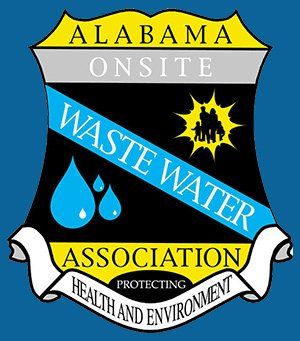Septic Tank Maintenance Tips
- By Admin
- •
- 29 Jun, 2021
- •
In the US, over 21 million
homes in rural use septic tanks for wastewater recycling instead of a sewer connection. Septic tanks are essential to homeowners and business owners who have no access to the sewer system.
Even though the septic tank is vital in recycling wastewater, some homeowners do not know the location of their septic tank. But if you want to keep your septic tank in a good state and have it serve you for a long time, use these septic tank maintenance tips.
1. Protect the Absorption Field
The absorption field is just as crucial as your septic tank. If you want to maintain your septic tank, you have to take proper care of the absorption field. Do not park your car or any other heavy objects on top of your drain field. These heavy objects can damage the absorption field and cause malfunctions in the piping system.
Also, trees with deep roots should be a few meters from the absorption field because the tree roots could damage the septic system. However, you can plant grass on the absorption field. Grass will help to avoid soil erosion. Remember to mow the grass regularly to enhance evaporation.
2. Pump the Septic Tank Frequently
Experts recommend that you should pump your septic tank after three to five years. Pumping improves the efficiency of your septic tank. However, that does not necessarily mean that you should pump your septic tank just because three years have passed since you last pumped. You have many factors to consider before pumping. Some factors include the number of users in your household and the frequency of use.
Hire septic tank experts to pump your septic tank. Experts will consider various factors before concluding if pumping is the ideal course of action. Some other factors experts consider include the volume of wastewater and the septic tank size.
3. Use Water Appropriately
Excessive water use can overload your septic tank. If excess water goes into your septic tank, this can overwork your septic tank. Consequently, your septic tank will likely be weaker sooner and less effective too.
For that reason, make sure you use minimal amounts of water in your septic system. Start by installing efficient showerheads. To add to that, some minor changes like not leaving your tap running can help you avoid excess water in your septic system.
4. Conduct Inspections Regularly
Prevention is always better than cure. Regularly inspecting your septic tank will help you identify any faults beforehand. Additionally, regular septic tank inspections ensure your septic tank is in a good condition. A septic tank that is in good condition will serve you for the longest time possible.
Always hire septic tank experts to conduct the assessment. Experts can detect any problems beforehand and help you avoid any future faults in your septic system.
5. Use Only Septic-Safe Detergents
A countless number of cleaning products are available in the market. Yet, not all are safe to use on your septic tank. Use detergents from natural products. The detergents from natural products are usually safer since the septic system can easily digest them.
6. Avoid Flushing Certain Items
Avoid flushing paper towels and some brands of toilet paper down the drain. These products, if in large quantity, are difficult for the septic system to digest. Finally, avoid flushing toxic chemicals down the drain. Toxic chemicals such as gasoline are detrimental to septic water. Dispose of toxic chemicals safely as advised by the manufacturer.
If you want qualified septic system experts, contact Allen's Septic Tank Service. We look forward to helping you with your septic needs!
Even though the septic tank is vital in recycling wastewater, some homeowners do not know the location of their septic tank. But if you want to keep your septic tank in a good state and have it serve you for a long time, use these septic tank maintenance tips.
1. Protect the Absorption Field
The absorption field is just as crucial as your septic tank. If you want to maintain your septic tank, you have to take proper care of the absorption field. Do not park your car or any other heavy objects on top of your drain field. These heavy objects can damage the absorption field and cause malfunctions in the piping system.
Also, trees with deep roots should be a few meters from the absorption field because the tree roots could damage the septic system. However, you can plant grass on the absorption field. Grass will help to avoid soil erosion. Remember to mow the grass regularly to enhance evaporation.
2. Pump the Septic Tank Frequently
Experts recommend that you should pump your septic tank after three to five years. Pumping improves the efficiency of your septic tank. However, that does not necessarily mean that you should pump your septic tank just because three years have passed since you last pumped. You have many factors to consider before pumping. Some factors include the number of users in your household and the frequency of use.
Hire septic tank experts to pump your septic tank. Experts will consider various factors before concluding if pumping is the ideal course of action. Some other factors experts consider include the volume of wastewater and the septic tank size.
3. Use Water Appropriately
Excessive water use can overload your septic tank. If excess water goes into your septic tank, this can overwork your septic tank. Consequently, your septic tank will likely be weaker sooner and less effective too.
For that reason, make sure you use minimal amounts of water in your septic system. Start by installing efficient showerheads. To add to that, some minor changes like not leaving your tap running can help you avoid excess water in your septic system.
4. Conduct Inspections Regularly
Prevention is always better than cure. Regularly inspecting your septic tank will help you identify any faults beforehand. Additionally, regular septic tank inspections ensure your septic tank is in a good condition. A septic tank that is in good condition will serve you for the longest time possible.
Always hire septic tank experts to conduct the assessment. Experts can detect any problems beforehand and help you avoid any future faults in your septic system.
5. Use Only Septic-Safe Detergents
A countless number of cleaning products are available in the market. Yet, not all are safe to use on your septic tank. Use detergents from natural products. The detergents from natural products are usually safer since the septic system can easily digest them.
6. Avoid Flushing Certain Items
Avoid flushing paper towels and some brands of toilet paper down the drain. These products, if in large quantity, are difficult for the septic system to digest. Finally, avoid flushing toxic chemicals down the drain. Toxic chemicals such as gasoline are detrimental to septic water. Dispose of toxic chemicals safely as advised by the manufacturer.
If you want qualified septic system experts, contact Allen's Septic Tank Service. We look forward to helping you with your septic needs!
Septic tanks are important for the treatment of wastewater treatment. Read this blog on the various aspects of septic tank replacement.
When you grow up in a house, you typically won't have a manual of what to flush down the toilet. Discover common family flushing traditions to avoid.
Septic systems provide an effective solution for wastewater. Read this blog about some considerations to think through before installing a septic system.
What shouldn't go into your septic system? Read this blog to learn what products should not enter your septic system through toilets or drains.
Many appliances in your home are the source of items that can damage your septic system. Discover some of those problematic appliances.
Washing laundry can affect your septic system’s operation. Consider the laundry tips from this blog post to protect your septic tank.
A septic system consists of components located underground that use natural techniques to treat wastewater. See the main types of septic systems for homes.
Septic tanks require proper care and maintenance to function correctly, and this can be complex if you have pets. See septic tank care tips for pet owners.
Maintenance costs for septic tanks can add up, but you do not have to spend a fortune. Learn how proper care can save you money on septic services.
For the best septic tank services, careful considerations are necessary. Discover a few qualities to look for in the septic tank company you hire.

